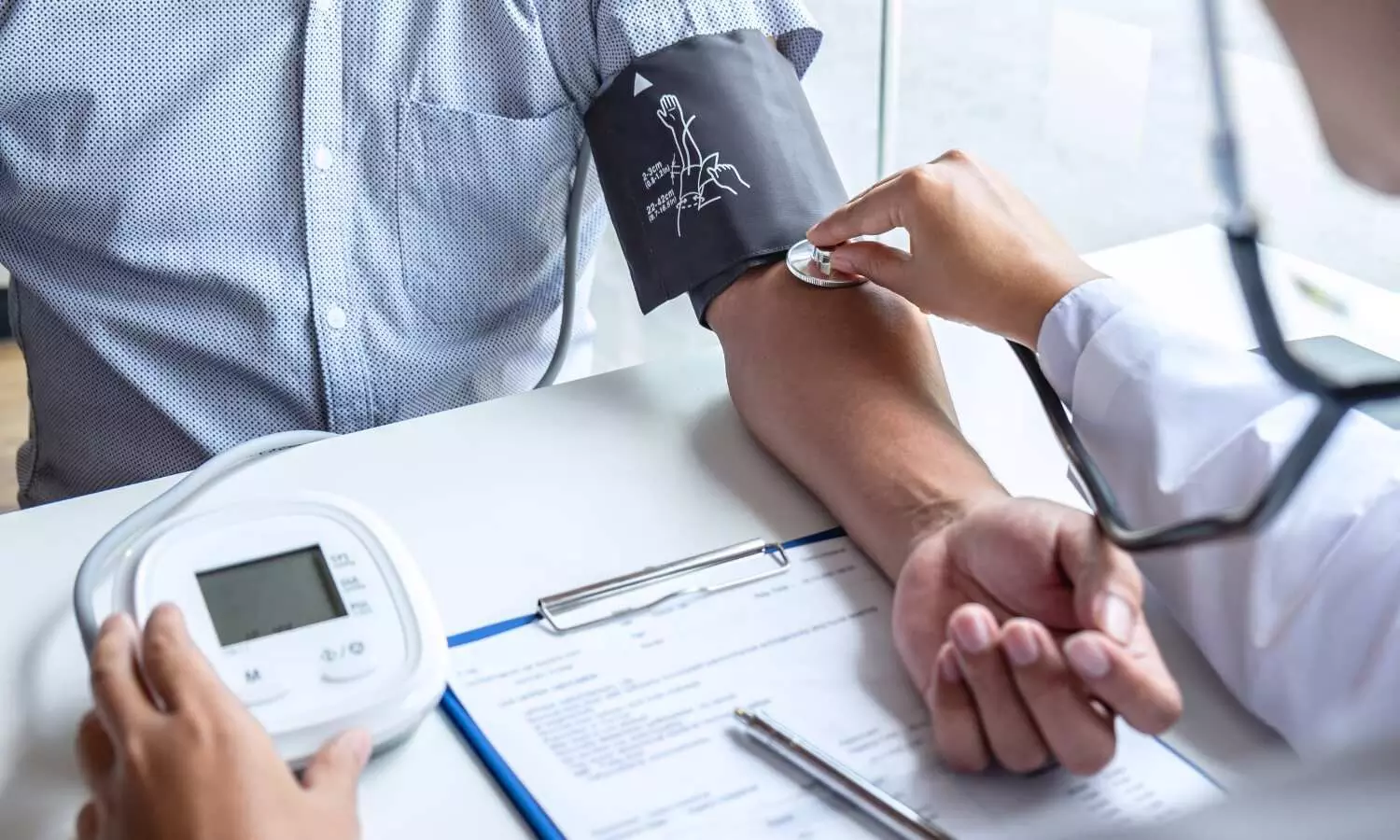By Dr. Kamal Kant Kohli
Copyright medicaldialogues

Artificial intelligence (AI) voice agents helped older adults with high blood pressure to accurately report their blood pressure readings and improved blood pressure management, according to preliminary research presented at the American Heart Association’s Hypertension Scientific Sessions 2025. The meeting is in Baltimore, September 4-7, 2025, and is the premier scientific exchange focused on recent advances in basic and clinical research on high blood pressure and its relationship to cardiac and kidney disease, stroke, obesity and genetics.“Controlling blood pressure remains a cornerstone for improving cardiovascular outcomes for patients, however, capturing timely, compliant blood pressure readings remains a challenge, particularly for patients with limited access to care,” said lead study author Tina-Ann Kerr Thompson, M.D., senior vice president of the primary care service line and executive director of the population health collaborative at Emory Healthcare in Atlanta. “In our study, we were able to improve accuracy of blood pressure measures and patient outcomes.”AI voice agents are conversational systems powered by large language models that can understand and produce natural speech in real time when interacting with humans. This study included 2,000 adults, a majority ages 65 and older, and was designed to evaluate the effectiveness and scalability of a voice-enabled AI agent in engaging patients to self-report accurate blood pressure readings, in place of a phone call with a health care professional about their blood pressure measures. The AI agent also identified patients in need of follow-up medical care based on their blood pressure readings.The AI voice-agent calls to patients were made using commercially available AI in multiple languages, including English and Spanish. A blood pressure reading outside the threshold range for readings that vary based on the presence of other conditions, such as diabetes, resulted in the call being escalated to a licensed nurse or medical assistant. The presence of symptoms such as dizziness, blurred vision or chest pain also prompted escalation of the call. Escalation to additional care was immediate in urgent situations or within 24 hours for non-urgent issues. The patients were contacted by the voice agent to provide recent blood pressure readings or to conduct live measurements during the call. After the call, the readings were entered into the patient’s electronic health record and reviewed by a clinician. Call routing and referrals for care management were prompted for patients with difficult-to-control high blood pressure. This process reduced the manual workload by clinicians and resulted in an 88.7% lower cost-per-reading. This amount was calculated by comparing the cost of commercially available AI voice agents with the use of human nurses to perform similar tasks that result in successfully obtaining patient self-reported blood pressure readings.The study found that integrating AI into clinical workflows lowered costs and improved care management for patients. During the study period:85% of patients were successfully reached by the voice-based AI agent.Of those patients, 67% completed the call, and 60% took a compliant blood pressure reading during the call. Among these patients, 68% met CBP (controlling blood pressure) Stars compliance thresholds.Overall, 1,939 CBP gaps were closed, elevating the measure from 1-Star to 4-Star performance-a 17% improvement. The Medicare Advantage (MA) and Healthcare Effectiveness Data and Information Set (HEDIS) CBP measure increased from a previously reported 1-star rating to 4-star rating.At the end of each completed call, patients received a two-question survey to rate their satisfaction on a scale of 1 to 10, with 10 being 100% satisfied. Among the completed calls, the average patient-reported satisfaction rate exceeded 9 out of 10, reflecting an excellent overall experience with the voice-based AI agent.“We were surprised by the high patient satisfaction scores after interacting with artificial intelligence-based voice agents,” said Thompson. “We are excited for what that means for the future, since patient engagement and satisfaction are so critical to health care outcomes.”“This could be a game-changing study,” said Eugene Yang, M.D., M.S., FACC, an American Heart Association volunteer expert. “Accurate blood pressure readings are essential to improving control, and new approaches can help make that possible. Breakthrough AI technologies like this could transform how we manage blood pressure by reaching patients wherever they are and addressing critical barriers, such as limited access to care and gaps in patient support.” Yang, who was not involved in this study, is a professor in the division of cardiology and the Carl and Renée Behnke Endowed Chair for Asian Health at University of Washington School of Medicine.The study has several limitations. This study was observational and did not have a control…



